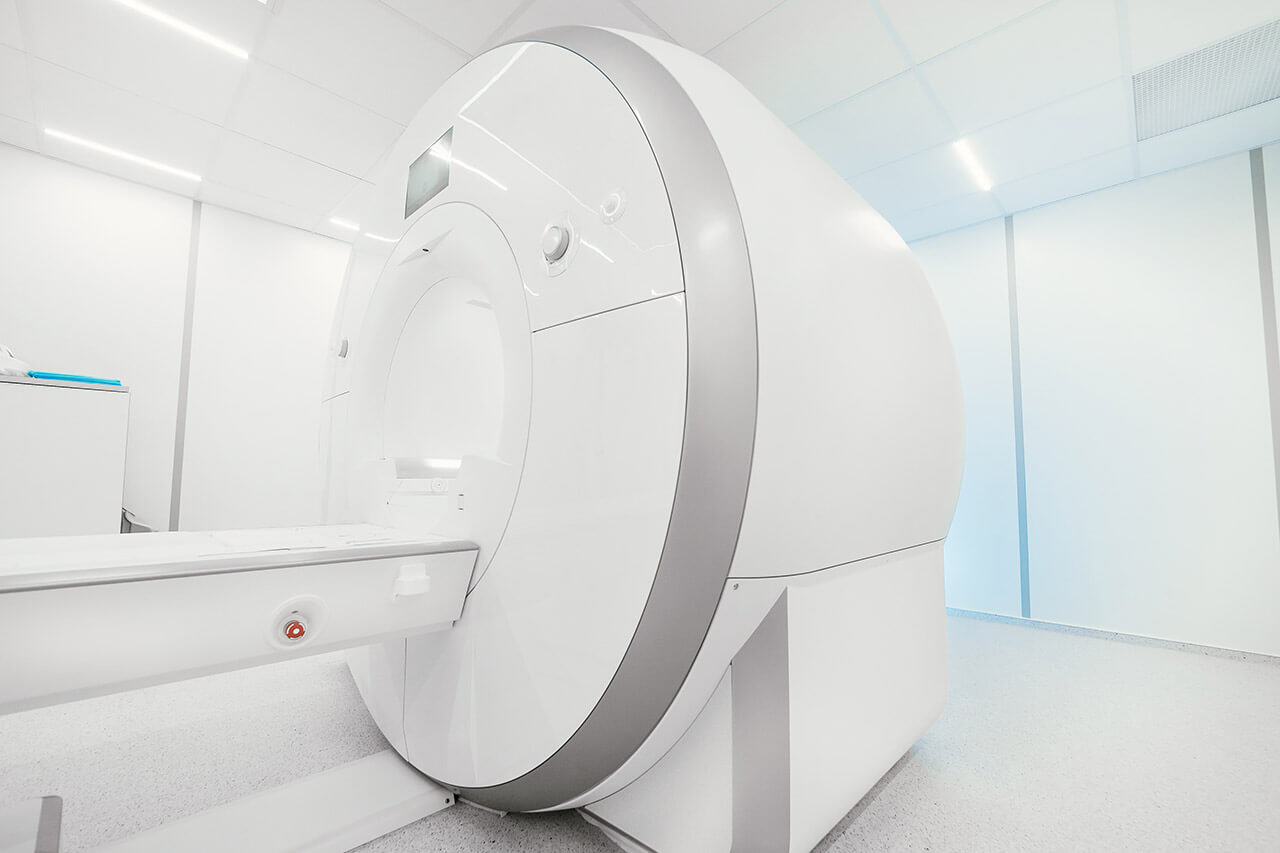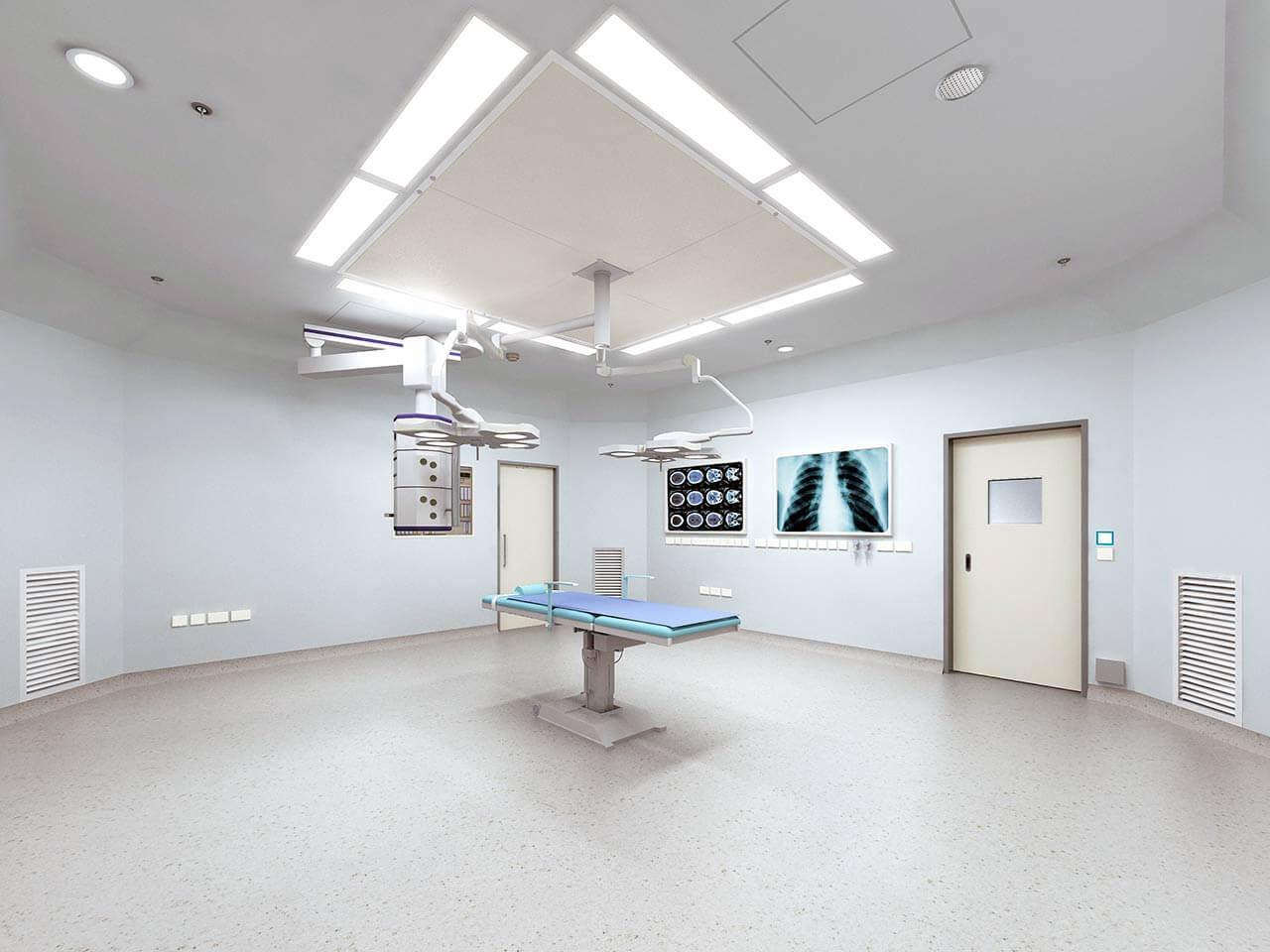
About the Department of Gynecology, Mammology and Obstetrics at Eichsfeld Hospital Heilbad Heiligenstadt
The Department of Gynecology, Mammology and Obstetrics at the Eichsfeld Hospital Heilbad Heiligenstadt offers the full range of diagnostics, conservative and surgical treatment of diseases of the female reproductive system. The specialists of the medical facility have all the necessary resources to provide effective medical care to patients with both benign and malignant pathologies. In the field of mammology, breast cancer surgery is of key interest. A team of obstetricians takes care of integrated pregnancy management in every trimester, ensures safe childbirth and postnatal care for mother and baby. Doctors are also experienced in managing high-risk pregnancies and multiple pregnancies. The department also offers the services of a specially trained diabetologist, who monitors pregnancy in women suffering from gestational diabetes. The entire department's medical team adheres to the same principles in their work – high professionalism combined with a humane attitude and personalized care. The department is headed by Dr. med. Annegret Kiefer.
The department's gynecologists deal with the treatment of all diseases and pathological changes in the female reproductive system. A large number of patients come to the department with cervical, ovarian, endometrial, vulvar and vaginal malignant tumors. First of all, the specialists of the medical facility carry out comprehensive diagnostics in order to confirm or exclude oncology. They usually conduct ultrasound examinations, hysteroscopy, histological and cytological examinations, as well as biopsy. Sometimes the patient may also require CT or MRI, as well as a PET-CT scanning. The necessary set of diagnostic tests is determined after studying the patient's medical history, complaints and clinical examination. Should cancer diagnosis be confirmed, the department's specialists begin to develop a treatment regimen. Each stage of the therapeutic process is planned in detail during the interdisciplinary tumor board, which brings together gynecologists, oncologists, radiation therapists, radiologists and other experts. In most cases, an integral part of gynecologic cancer treatment is a surgical resection of a malignant tumor (at the early stages). In the advanced stages of cancer, hysterectomy (surgical removal of the uterus), ovariectomy (surgical removal of the ovaries) and fallopian tube resection are often required, since all of these organs are usually affected at the advanced stages of cancer or there is a high risk of their lesions. Whenever possible, the department's specialists give preference to laparoscopic procedures, while open surgery is performed only in the most complex clinical cases. Depending on the particular type of gynecologic cancer and the stage of the oncological process, the treatment regimen includes chemotherapy, radiation therapy, hormone therapy, targeted therapy and other methods. The department also provides the patients with services of competent psychologists who support women and help them cope with the emotional distress during the therapeutic process.
As for benign gynecologic diseases, uterine fibroids and endometriosis are most common. With these pathologies being detected at the early stages, the department's doctors give preference to pharmacotherapy. The patients with uterine fibroids can also undergo uterine artery embolization. The procedure involves making a puncture in the femoral or radial artery, through which a catheter is inserted. A special embolizing drug, containing microspheres – emboli, which block the vessels, is then injected through the catheter into the uterine arteries. Soon, the emboli are additionally closed with thrombotic masses, which leads to the cessation of blood flow through the uterine arteries. Without blood supply, myomatous nodes gradually decrease in size and degenerate into connective tissue. If a diagnosis of endometriosis is confirmed in a woman, first of all, the optimal drug therapy regimens are considered, and if they do not give the expected result, gynecologists resort to minimally invasive interventions, during which the foci of endometriosis are removed while preserving the uterus. In addition, doctors provide both conservative and surgical treatment of urinary incontinence and pelvic organ prolapse in close cooperation with the Department of Urology. The surgical treatment involves the use of low-traumatic laparoscopic techniques.
The main focus of breast specialists is on breast cancer treatment. This is one of the most common cancers in women. The doctors have in their arsenal various therapeutic techniques, which are usually combined to maximize the effectiveness of treatment. As a rule, the first stage of treatment is organ-preserving surgical resection of a malignant tumor. To treat advanced breast cancer, the department's doctors often resort to mastectomy (breast removal). In most cases, the surgical intervention is complemented by conservative therapies: chemotherapy, radiation therapy, hormone therapy, targeted therapy, and other treatments. Each clinical case is unique, so the treatment regimen is developed based on the patient's particular clinical indications, her general health, age and other important factors.
The department's obstetric services include integrated management of pregnancy, including high-risk pregnancies, childbirth and postnatal care for the mother and her newborn baby. The team of the department's obstetricians welcomes natural childbirth, but if necessary, a C-section is performed. Water birth is possible if desired. The medical facility offers a variety of pain management techniques, including epidural anesthesia, acupuncture, homeopathy, etc. The team of obstetricians makes every effort to ensure a safe childbirth in a comfortable environment.
The department's main clinical focuses include:
- Gynecology
- Diagnostics and treatment of oncological diseases of the female reproductive system: cervical, ovarian, endometrial, vulvar and vaginal cancers
- Surgical interventions for resection of a malignant tumor or the entire affected organ and adjacent anatomical structures – preference is given to endoscopic and laparoscopic techniques
- Conservative treatment methods: chemotherapy, radiation therapy, hormone therapy, targeted therapy
- Diagnostics and treatment of benign diseases of the female reproductive system
- Pharmacotherapy, uterine artery embolization and laparoscopic interventions for uterine fibroids
- Pharmacotherapy and laparoscopic interventions for endometriosis
- Pharmacotherapy and laparoscopic interventions for urogynecologic diseases: urinary incontinence and pelvic organ prolapse
- Diagnostics and treatment of oncological diseases of the female reproductive system: cervical, ovarian, endometrial, vulvar and vaginal cancers
- Mammology
- Diagnostics and treatment of breast cancer
- Organ-preserving breast cancer surgery and breast removal surgery (mastectomy)
- Conservative treatment methods: chemotherapy, radiation therapy, hormone therapy, targeted therapy
- Diagnostics and treatment of breast cancer
- Obstetrics
- Pregnancy management in all trimesters, including high-risk pregnancies and pregnancies in women with gestational diabetes
- Childbirth (natural childbirth, water birth, C-section)
- Postnatal care for mother and her newborn baby
- Other medical services
Curriculum vitae
Dr. med. Annegret Kiefer is the Head Physician of the Department of Gynecology, Mammology and Obstetrics at the Eichsfeld Hospital Heilbad Heiligenstadt. The doctor has board certification in gynecology and obstetrics, as well as a wealth of clinical experience. The priority fields of Dr. Annegret Kiefer's work include the treatment of female genital cancers and urogynecologic diseases. The specialist has excellent skills in the field of laparoscopic gynecologic surgery and successfully performs such interventions, including hysterectomy and operations for the female genital cancers.
Photo of the doctor: (c) Eichsfeld Klinikum





